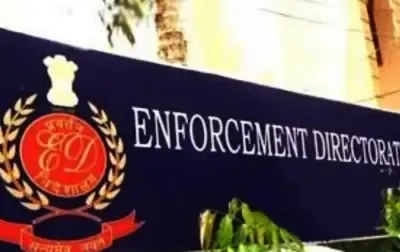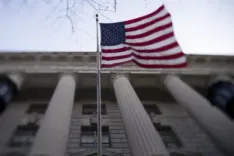Can the ED Penalize Third Parties Who Unknowingly Purchase Attached Properties?

Synopsis
Key Takeaways
- The ED must publicize property attachments to avoid penalizing innocent buyers.
- The Appellate Tribunal protects third-party rights under the Prevention of Money Laundering Act.
- Innocent purchasers cannot be held liable for the negligence of enforcement agencies.
- A precedent is set for future cases involving unwitting property buyers.
- Due diligence is crucial in property transactions to safeguard against legal pitfalls.
New Delhi, July 13 (NationPress) In a significant ruling, an Appellate Tribunal focused on money laundering cases declared that if the ED does not adequately publicize or postpones the attachment of a suspect's property, it would be unjust to penalize third parties who purchase these properties without knowledge.The Appellate Tribunal, operating under the Smugglers and Foreign Exchange Manipulators (Forfeiture of Property) Act (Safema), 1976, in New Delhi, made this declaration while overturning the Enforcement Directorate’s attachment of a land parcel in Pune, which was developed into a housing society for 126 families.
The tribunal, consisting of Members G.C. Mishra and Rajesh Malhotra, invalidated the ED’s initiative to seize the land, highlighting the agency's failure to make the attachment public.
The Appellate Tribunal indicated that the ED’s negligence made the attachment order “unenforceable against bona fide transferees.”
Critiquing the federal agency for its actions that bordered on “negligence verging on collusion,” the tribunal established a legal precedent concerning third-party rights under the Prevention of Money Laundering Act (PMLA).
This ruling also serves as a framework for future cases involving third parties who unknowingly acquire attached properties.
In an order dated July 8, the Appellate Tribunal determined that the timeframe for appeal under PMLA should commence from the date of actual awareness of the attachment, rather than the undisclosed issuance date.
In a favorable outcome for the petitioners, which included the special-purpose development company Hindavi Swarajya Trading and the 126 families of Scrum Utkarsh CGHS, the Appellate Tribunal annulled the ED’s 2013 attachment of land located at Survey No. 220, Hinjewadi, Pune.
This land, legally obtained by Hindavi after thorough due diligence, served as the site for the Scrum Utkarsh cooperative housing project—a community of 126 homes built and inhabited by middle-class software professionals and their families.
The basis for the ED's attachment of the plot was linked to scam mastermind Sayed Masood’s laundering of Rs 6.67 crore from investors of City Limouzines into the Hinjewadi land, which was funneled through shell transactions orchestrated by Sajid Ibrahim Varekar (Masood’s attorney) and Guddu Mehboob Sheikh.
At no time were Hindavi or its members aware that the ED had clandestinely attached the land in March 2013 in connection with the City Limouzines scam, which was orchestrated by Sayed Masood.
By the time the ED’s initial communication reached the Sub-Registrar in September 2015, construction had been completed, bank financing had been allocated, and most flat sales had occurred, according to the petitioners.
The delayed and selective use of powers nearly caused a collapse of flat registrations and resulted in years of litigation for both Hindavi and Scrum.
The Appellate Tribunal, acknowledging the human toll, noted that penalizing legitimate purchasers who adhered to all procedural measures, while allowing actual money launderers' properties to remain untouched, would “invert the raison d’être of the PMLA.”
Lead counsel for the appellants, Faraz Khan, expressed, “This ruling establishes a constitutional boundary—punish the launderers, not the honest citizens.”
“Due diligence should not feel like a game of hide-and-seek. When the State attaches property, it must announce it loudly—register it, publicize it, and mark it. The ED’s failure to follow these protocols nearly ruined the lives of 126 families,” he emphasized.
Freezing and unfreezing crores of suspected laundered assets while keeping the attachment hidden from an innocent buyer is not merely negligence—it represents a systemic failure, he asserted.
Aakriti Mathur, counsel for Scrum Utkarsh, remarked, “This case transcended property law or technicalities—it was about safeguarding the dignity and homes of 126 innocent families.”
“We stood firm because our clients were never part of the initial wrongdoing, yet they were being crushed by its repercussions,” said Mathur.










